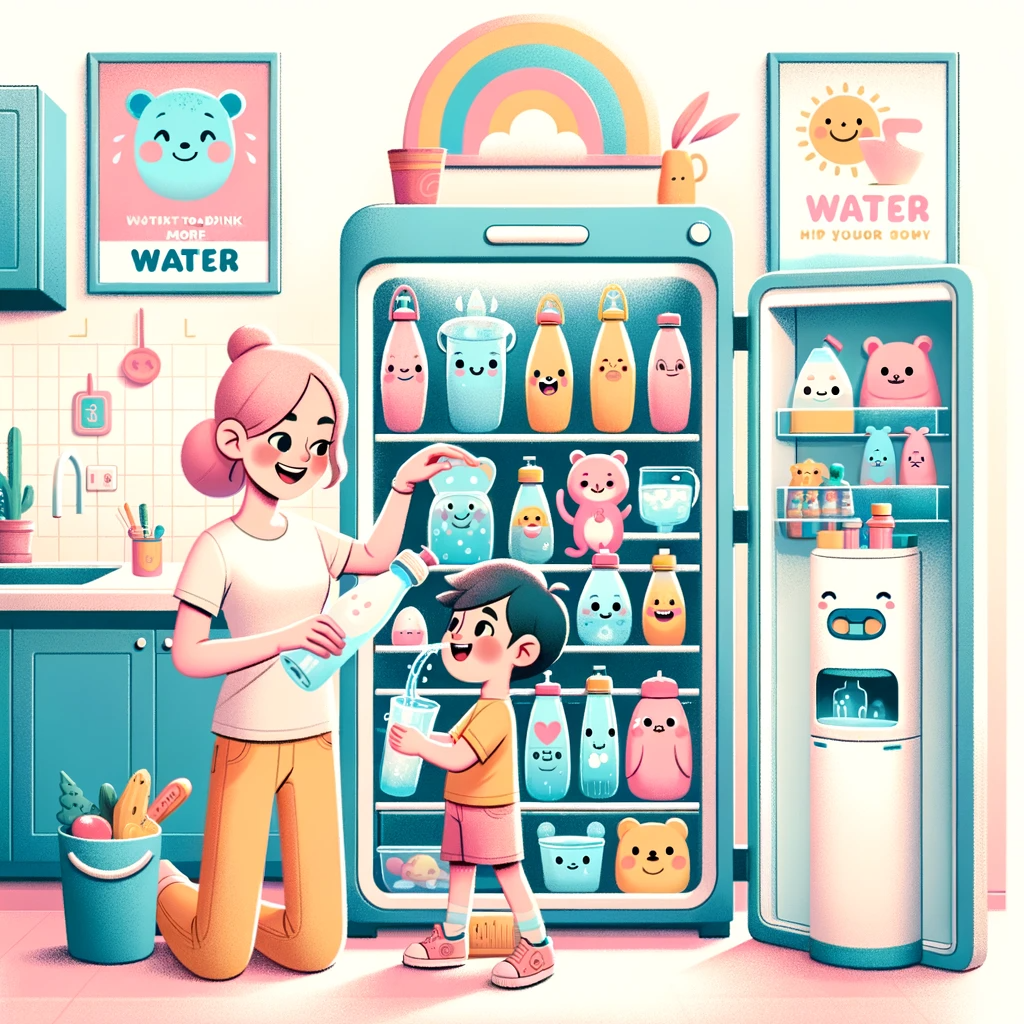It's no secret that drinking water is essential for health - especially for our energetic children. But how do you get little ones to reach for the water bottle instead of sugary juices? Here are practical tips to encourage children to hydrate healthily.
1. Be a role model
Children imitate what they see. If they observe their parents drinking water regularly, they are likely to do the same. So, parents, grab a water bottle yourself!
2. Fun water bottles and cups
Invest in fun, colorful drinking vessels or ones with your children's favorite characters. A personal water bottle can significantly increase motivation.
3. Offer taste experiences
Sometimes pure water is boring for children. How about a squeeze of lemon juice or some frozen berries as an ice cube replacement for a little flavor?
4. Take regular drinking breaks
Set fixed times to drink together. After school, in front of the TV or after playing are ideal opportunities to increase your fluid intake.
5. Utilize reward systems
Creates a reward system: for every bottle of water you drink, you get one point. When enough points have been collected, the child can choose a small reward.
6. Make water accessible everywhere
Ensures water is always easily accessible at home and on the go. When children are thirsty, the healthiest option should be readily available.
7. Education is key
Explain to your children why drinking water is important. Children who understand that water helps them grow stronger and smarter are often more motivated to drink.
8. Creative Drinking Games
Make drinking water a game. Who can sip the quietest or who can not sip at all most of the time?
9. Offer liquid-rich snacks
Water-rich fruits and vegetables such as watermelon, cucumber or oranges are not only healthy snacks, but also increase fluid intake.
Conclusion
Through creativity, consistency, and a little psychology, parents can successfully encourage their children to drink more water. It's not just about promoting healthy habits, but also about laying a foundation for a lifelong understanding of health and well-being.
